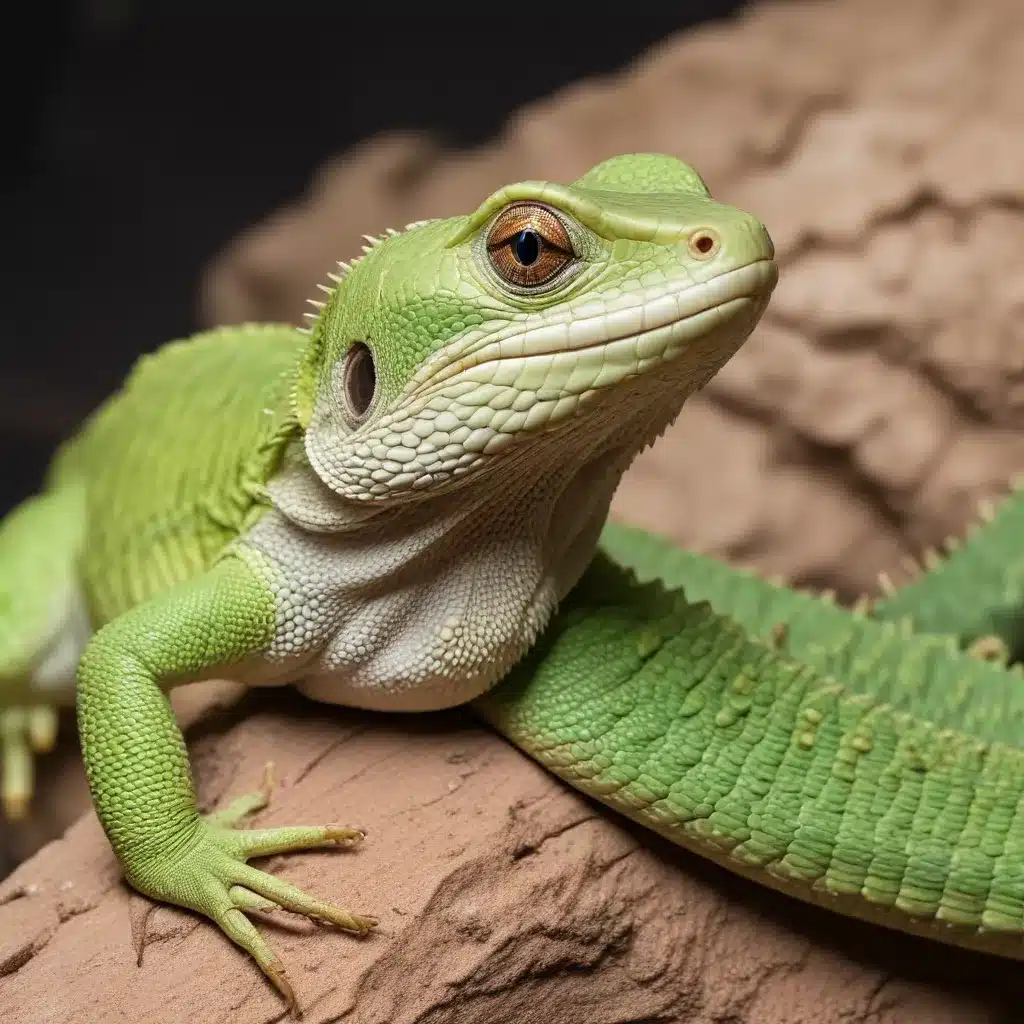
Responsible Reptile Care and Breeding Practices
Caring for exotic reptiles requires a deep understanding of their unique needs and behaviors. Reptiles are ectothermic, meaning they rely on external sources of heat to regulate their body temperature, and their care needs can vary significantly by species. Providing the appropriate environmental conditions, nutrition, and veterinary care is crucial for the health and wellbeing of these animals.
When it comes to breeding reptiles, responsible practices are essential. Unethical breeding can lead to the production of animals with genetic defects, health issues, or behavioral problems, which can cause unnecessary suffering. Additionally, the indiscriminate breeding and sale of exotic reptiles can contribute to conservation concerns, as wild populations may be depleted to supply the pet trade.
To ensure the ethical and sustainable breeding of reptiles, breeders must follow best practices in reptile husbandry and carefully consider the conservation implications of their activities. This includes understanding the legal requirements for breeding and selling exotic species, as well as prioritizing the welfare of the animals above profits.
Legal Considerations for Reptile Breeding and Sales
Before engaging in reptile breeding or sales, it is crucial to familiarize oneself with the relevant laws and regulations. In the United States, the sale and transport of certain reptile species are governed by federal, state, and local laws. Failure to comply with these laws can result in significant fines or even legal penalties.
At the federal level, the Endangered Species Act (ESA) and the Convention on International Trade in Endangered Species of Wild Fauna and Flora (CITES) regulate the trade of protected reptile species. Breeders and sellers must ensure that any reptiles they handle are not listed as endangered or threatened, or that they have the necessary permits to legally trade in these species.
Individual states may also have their own laws and regulations regarding the ownership, breeding, and sale of exotic reptiles. These laws can vary widely, so it is essential to research the specific requirements in the areas where you plan to operate. Some states may require permits or licenses for breeding or selling certain reptile species, while others may have outright bans on the possession of certain species.
To ensure compliance with all applicable laws, it is recommended that reptile breeders and sellers consult with local authorities, such as wildlife agencies or veterinary boards, to understand the legal requirements in their area. Failure to follow these rules can result in significant fines, seizure of animals, or even criminal charges.
Ethical Considerations in Reptile Breeding
Beyond the legal requirements, reptile breeders must also consider the ethical implications of their practices. Responsible breeding prioritizes the welfare of the animals above all else, ensuring that the breeding process and the resulting offspring are not subjected to undue stress or suffering.
One critical aspect of ethical reptile breeding is the prevention of genetic defects and health issues. Breeders should avoid breeding closely related individuals, as this can lead to the expression of recessive genetic disorders. Instead, they should strive to maintain genetic diversity within their breeding populations, which can be achieved through techniques like outcrossing or the introduction of new bloodlines.
Another important consideration is the living conditions and care provided to the breeding animals. Reptiles require specific environmental conditions, such as appropriate temperature, humidity, and substrate, to thrive. Breeders must ensure that their breeding facilities can meet these needs and provide the animals with a stress-free, enriched environment.
Responsible reptile breeders should also be mindful of the number of offspring they produce and the demand for their animals. Overzealous breeding can lead to an oversaturation of the pet market, causing some animals to be neglected or even abandoned. Breeders should carefully consider the demand for their species and adjust their breeding programs accordingly, ensuring that they can provide proper care and placement for all the animals they produce.
Conservation Implications of Reptile Breeding
The exotic reptile trade, including both legal and illegal activities, can have significant implications for the conservation of wild reptile populations. Indiscriminate collection of animals from the wild to supply the pet trade can deplete natural populations, leading to the decline or even extinction of certain species.
Responsible reptile breeders can play a crucial role in mitigating these conservation concerns. By providing captive-bred animals, they can reduce the demand for wild-caught specimens and help preserve wild populations. Additionally, some breeders may participate in conservation programs, such as captive breeding and reintroduction efforts, to support the recovery of endangered species.
However, it is essential to recognize that even captive-bred reptiles can have an impact on wild populations. Escaped or released pet reptiles can establish feral populations, which can compete with native species and disrupt local ecosystems. Breeders must take steps to ensure that their animals do not escape or end up in the wrong hands, and they should educate their customers on the importance of proper containment and responsible pet ownership.
Furthermore, the popularity of certain reptile species, such as certain color morphs or hybrid breeds, can drive the demand for these animals, leading to unethical breeding practices and the potential for exploitation of wild populations. Responsible breeders should be mindful of these trends and avoid producing animals solely for their novelty or commercial value, focusing instead on the overall health and welfare of the reptiles.
Conclusion
Reptile breeding and the exotic reptile trade present both opportunities and challenges. By following ethical practices, adhering to legal requirements, and prioritizing the welfare and conservation of these animals, reptile breeders can contribute to the responsible and sustainable management of captive reptile populations.
Ultimately, the goal should be to provide high-quality, healthy reptiles to enthusiasts and hobbyists while minimizing the impact on wild populations and ensuring the highest standards of animal welfare. By working together, reptile breeders, veterinarians, and conservation advocates can help shape a future where exotic reptiles can thrive in captivity and in the wild.
To learn more about responsible reptile care and breeding, please visit our website at exoticreptilesforsale.com.

